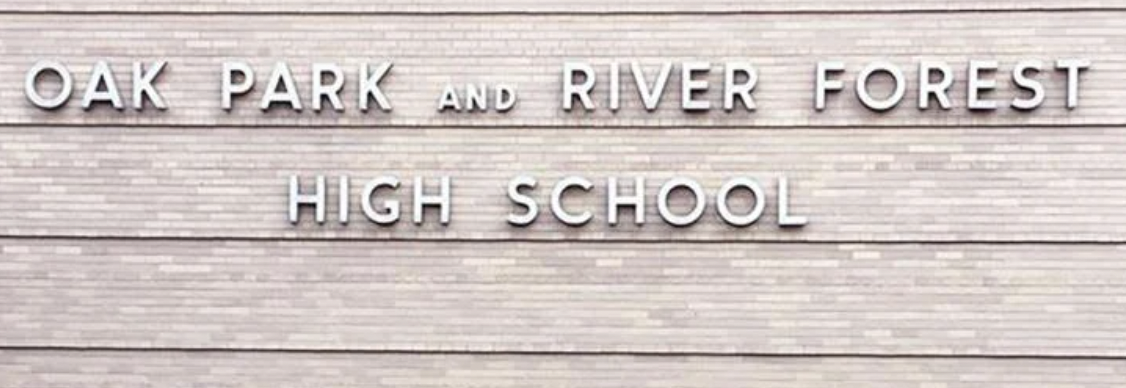
Oak Park River Forest High School seeks to implement “equitable grading;” denies that grading will be based on race
Incidents
Oak Park River Forest High School is in the process of developing and implementing equitable grading practices throughout the district. District personnel, in internal communication, claim equitable grading is “NOT grading for race.”
Per internal communications, a teacher states that they have been told by another faculty member that “each kid is going to get what they need to master the standards at their own pace while taking equitable assessments in which Black students will grow as much white kids (how does one do that?).” The teacher continues, “We have been presented with very few actual examples of how teachers do that in their classrooms. The January 3rd PD sort of began this conversation (after spending 20+ minutes drawing trees, they touched on the idea of doing pre- and post-tests).” Finally, the teacher asks “Can OPRFHS employ that vision and still have disparate results?”
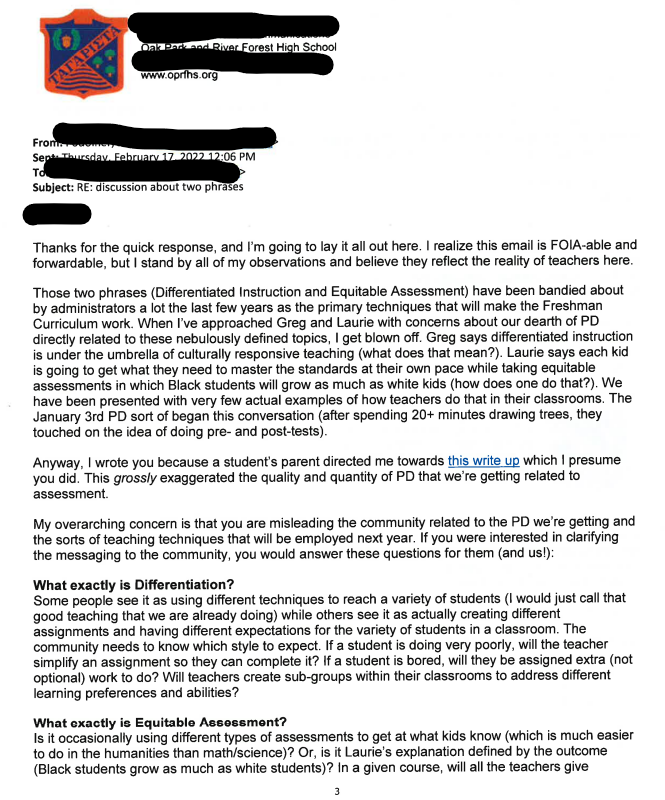
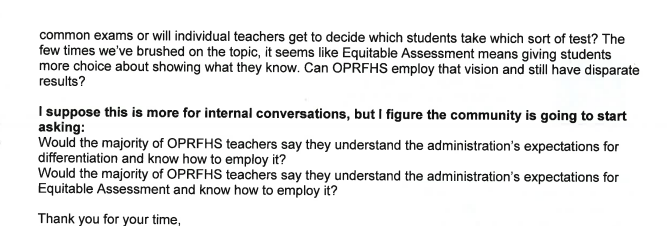
From the January 3rd professional development on equitable assessments, the district’s “Equitable Excellence Framework” identifies Culturally Responsive and Relevant Teaching as a core part of its “Student Development” continuum. The district defines “Equitable Excellence” as the “belief that we cannot have one (excellence) without the other (equity). Within the context of secondary education, the two are inseparable.”
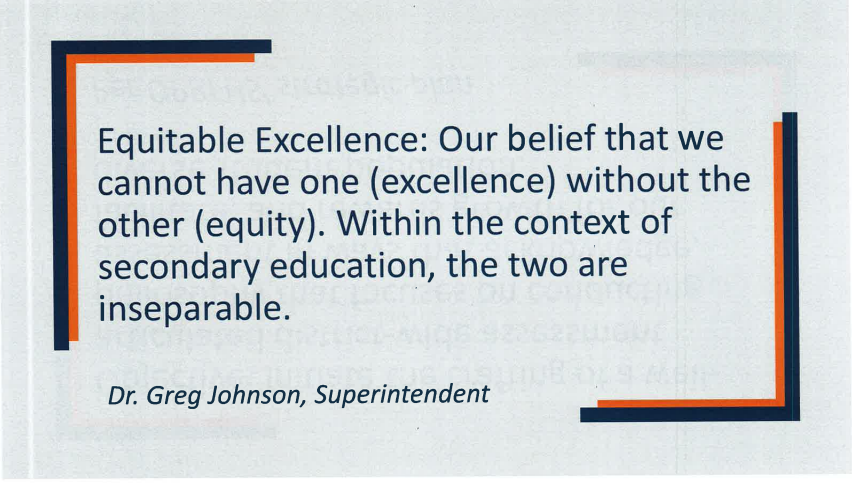
According to Dr. Gloria Ladson-Billings, Culturally Responsive Teaching is “an approach that empowers students intellectually, socially, emotionally, and politically by using cultural referents to impart knowledge, skills, and attitudes.” In other words, school curriculum, materials and assessments are to be designed around a student’s culture, which often includes a student’s racial background.
Professional development documents show that the school district defines “Racial Equity” as the “systemic fair treatment of people of all races and ethnicities which eliminates racial and ethnic inequities so that race and ethnicity are not factors in outcomes.”
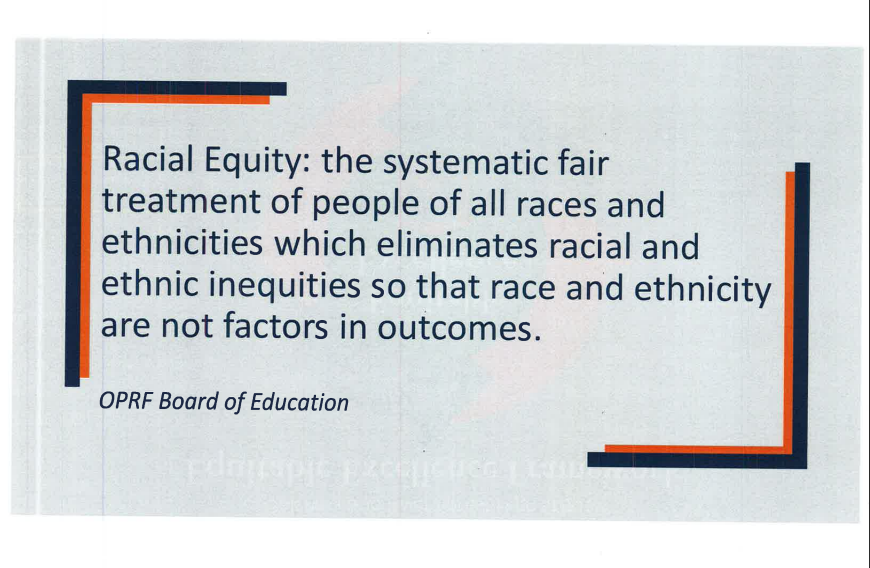
A slide titled “National Institute for Learning Outcomes Assessment” states that assessments which are not done with equity in mind “privileges and validates certain types of learning and evidence of learning over others, can hinder the validation of multiple means of demonstration, and can reinforce within students the false notion that they do not belong.” In other words, in order for assessments to properly gage student learning, it needs to prioritize equity and culturally responsive techniques.
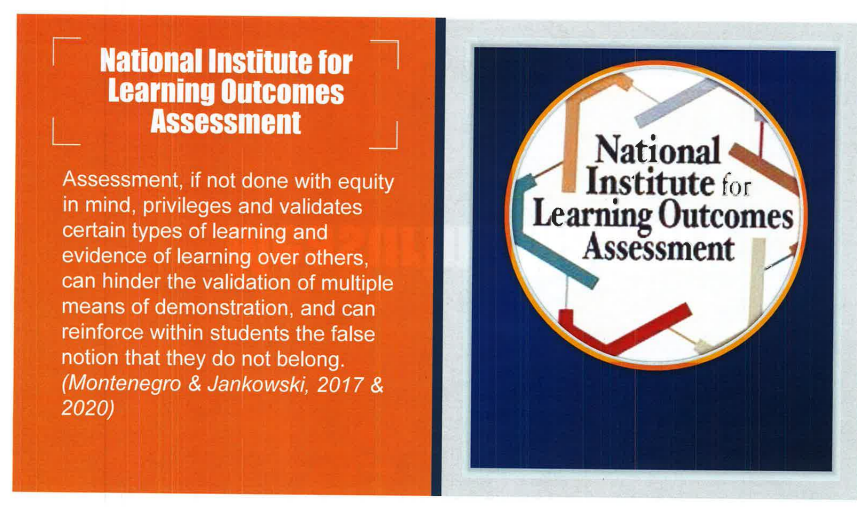
A district professional development presentation slide states that Culturally Responsive “acknowledges context – student population being served,” “Multiple sources of evidence that are relevant to current students” and “Adults examine their racial consciousness during development.”
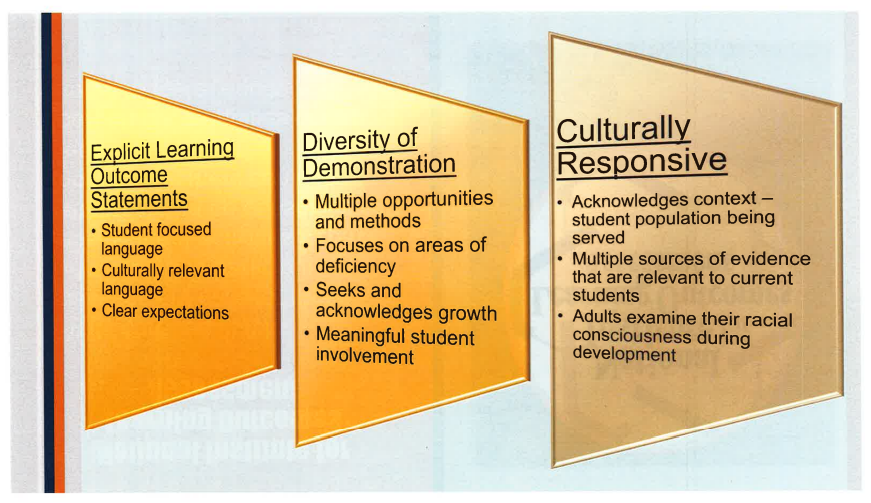
A slide titled “Equitable Assessment” states that it “Promotes access to opportunity versus classroom-based meritocracy wherein students must earn their way into more challenging work.”
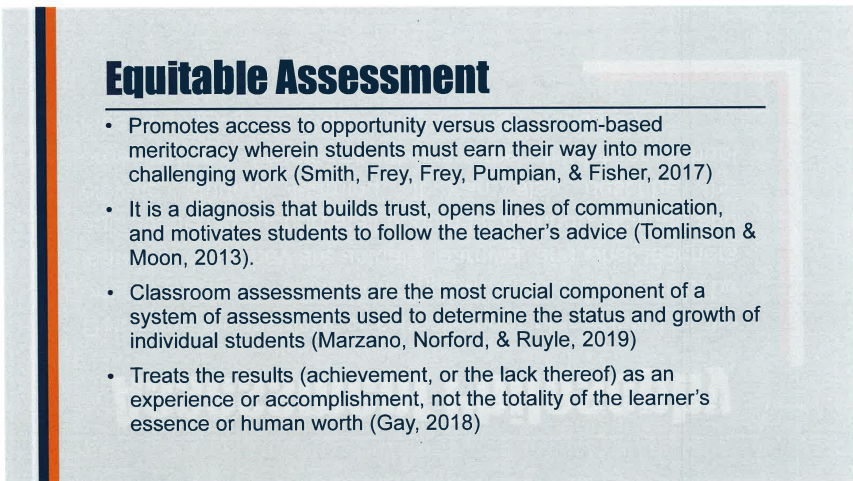
A presentation for the May 26, 2022, Board of Education features a “Summary of Findings” related to equitable grading practices. The slide states that “Traditional grading practices perpetuate inequities and intensify the opportunity gap” and many teachers are “utilizing aspects of competency-based grading, eliminating zeros from the grade book, and encouraging and rewarding growth over time.”
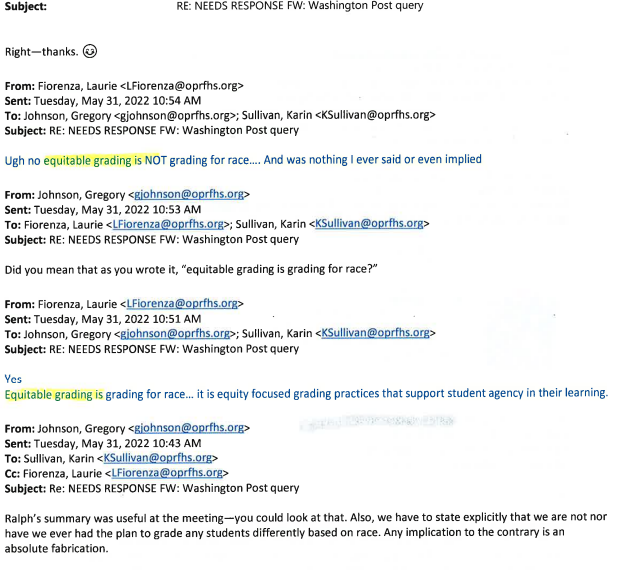
Stay Informed
